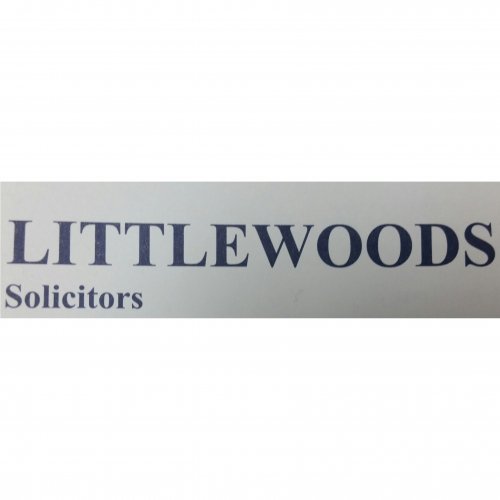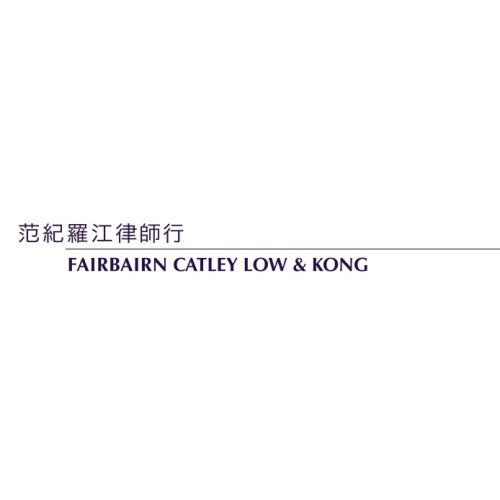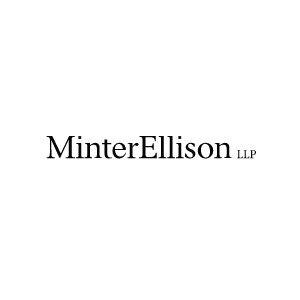Best Structured Finance Lawyers in Hong Kong
Share your needs with us, get contacted by law firms.
Free. Takes 2 min.
Or refine your search by selecting a city:
List of the best lawyers in Hong Kong
About Structured Finance Law in Hong Kong
Structured finance is a specialized area of finance that involves the creation of complex financial instruments to meet specific needs or manage risks. In Hong Kong, structured finance plays a significant role in the region’s stature as a leading international financial centre. Transactions may include asset-backed securities, collateralized debt obligations, securitization of receivables, project financing, and other sophisticated funding arrangements involving multiple parties and intricate legal structures. The field is governed by commercial, banking, securities, tax, and insolvency laws, making legal expertise essential for successful transactions.
Why You May Need a Lawyer
Seeking legal advice in structured finance is crucial given the complexities and risks involved. Common scenarios where you might need a lawyer include:
- Structuring or negotiating asset-backed securities or securitization deals
- Drafting or reviewing legal documentation for complex transactions
- Assessing and managing tax or regulatory risks associated with financial products
- Ensuring compliance with Hong Kong’s securities and banking regulations
- Handling cross-border transactions or syndicated loans
- Mitigating risks in case of defaults or insolvency
- Advising on the formation and governance of special purpose vehicles (SPVs)
- Resolving disputes or enforcing security interests
- Responding to regulatory inquiries or investigations
- Navigating legal aspects of new products like green finance or digital assets
Local Laws Overview
Structured finance transactions in Hong Kong are primarily influenced by several key legal regimes:
- Companies Ordinance (Cap. 622): Regulates the formation, governance, and dissolution of companies and SPVs used in structured transactions.
- Securities and Futures Ordinance (Cap. 571): Governs the offering of securities, licensing of intermediaries, and market conduct rules relevant to structured products.
- Banking Ordinance (Cap. 155): Covers prudential regulations for authorized institutions, including capital adequacy and risk management requirements relevant for banks involved in structured finance.
- Insolvency Law: Key statutes include the Companies (Winding Up and Miscellaneous Provisions) Ordinance, addressing the rights and obligations of parties in the event of insolvency.
- Tax Law: The Inland Revenue Ordinance specifies tax implications for structured transactions.
- Common Law Principles: These play a role in interpreting contractual obligations, property rights, and dispute resolution.
Additionally, Hong Kong maintains a strong regulatory environment with oversight from authorities such as the Securities and Futures Commission (SFC), the Hong Kong Monetary Authority (HKMA), and the Hong Kong Stock Exchange (HKEX), all of which set standards for compliance, disclosure, and investor protection in structured finance.
Frequently Asked Questions
What is structured finance and how does it work in Hong Kong?
Structured finance involves creating tailored financial products such as securities backed by loans, receivables, or other assets. In Hong Kong, these transactions are commonly used to manage risk, raise capital, and address unique financing needs for corporations and financial institutions.
Is securitization allowed in Hong Kong?
Yes, securitization is permitted under Hong Kong law. There are established legal frameworks and market practices for the securitization of assets like mortgages, receivables, and lease payments. However, all relevant regulations and disclosure requirements must be satisfied.
What are Special Purpose Vehicles (SPVs) and why are they used?
SPVs are separate legal entities created specifically to hold assets or liabilities for structured finance transactions. They help isolate risks, facilitate compliance, and provide legal separation from the originator or sponsor.
Who regulates structured finance in Hong Kong?
Structured finance activities may be regulated by the Securities and Futures Commission (SFC), the Hong Kong Monetary Authority (HKMA), and the Hong Kong Stock Exchange (HKEX), depending on the nature of the transaction.
Are there any tax considerations in structured finance transactions?
Yes. Tax treatment will depend on the transaction structure, the nature of the income or gains, and the jurisdiction of parties involved. Legal and tax advice is essential to ensure compliance and avoid unexpected liabilities.
Can foreign parties participate in structured finance deals in Hong Kong?
Foreign involvement is common in Hong Kong’s structured finance market. However, regulatory requirements, tax implications, and foreign exchange controls must be carefully evaluated with legal help.
What types of assets are typically securitized in Hong Kong?
Commonly securitized assets include residential and commercial mortgages, auto loans, trade receivables, credit card receivables, and equipment leases.
What happens if an SPV involved in a transaction becomes insolvent?
Insolvency procedures are generally governed by Hong Kong’s insolvency laws. Asset ring-fencing and the ranking of creditor claims will be determined by the structure of the SPV and the terms of the transaction documents.
How is investor protection ensured in structured finance?
Investor protection is a priority in Hong Kong through mandatory disclosure, regulatory oversight, and compliance with licensing and conduct requirements. Offering documents must clearly set out risks, and regulated intermediaries must adhere to suitability obligations.
Should I consult a lawyer before entering into a structured finance transaction?
Yes. Given the complexity, regulatory requirements, and potential for significant financial risk, it is strongly recommended to seek legal advice before participating in or structuring such transactions.
Additional Resources
For further information and assistance, you may find the following organizations and resources helpful:
- Securities and Futures Commission (SFC) - regulator of securities, futures, and the investment market
- Hong Kong Monetary Authority (HKMA) - regulator for banks and monetary policy
- Hong Kong Stock Exchange (HKEX) - exchange and regulator for listed securities
- The Law Society of Hong Kong - directory of qualified lawyers specializing in financial law
- Financial Services and the Treasury Bureau - government policymaker for the financial sector
- The Companies Registry - responsible for company formation and records
Next Steps
If you require legal assistance related to structured finance in Hong Kong, consider the following steps:
- Gather documentation relevant to your transaction or query, such as contracts, prospectuses, or correspondence.
- Prepare a summary of your objectives, concerns, and specific questions.
- Search for qualified law firms or independent lawyers experienced in structured finance, using resources such as the Law Society of Hong Kong’s directory.
- Contact your chosen lawyer to arrange a consultation, either in-person or remotely.
- Discuss possible legal strategies, compliance requirements, and associated risks with your legal advisor.
- Follow your lawyer’s guidance regarding documentation, due diligence, negotiation, or dispute resolution as appropriate.
- Continue to monitor legal and regulatory developments which may impact your structured finance activities in Hong Kong.
Proper legal advice can help you navigate the complexities of structured finance, mitigate risks, and achieve your financial objectives while remaining compliant with local laws.
Lawzana helps you find the best lawyers and law firms in Hong Kong through a curated and pre-screened list of qualified legal professionals. Our platform offers rankings and detailed profiles of attorneys and law firms, allowing you to compare based on practice areas, including Structured Finance, experience, and client feedback.
Each profile includes a description of the firm's areas of practice, client reviews, team members and partners, year of establishment, spoken languages, office locations, contact information, social media presence, and any published articles or resources. Most firms on our platform speak English and are experienced in both local and international legal matters.
Get a quote from top-rated law firms in Hong Kong — quickly, securely, and without unnecessary hassle.
Disclaimer:
The information provided on this page is for general informational purposes only and does not constitute legal advice. While we strive to ensure the accuracy and relevance of the content, legal information may change over time, and interpretations of the law can vary. You should always consult with a qualified legal professional for advice specific to your situation.
We disclaim all liability for actions taken or not taken based on the content of this page. If you believe any information is incorrect or outdated, please contact us, and we will review and update it where appropriate.
Browse structured finance law firms by city in Hong Kong
Refine your search by selecting a city.
















